It’s the start of the new year, so that means I kick off a new 100-day project. Each year, I start with a specific project in mind. Some past themes have included:
- Appliqué Circles
- Blue Improv Log Cabins
- Pink and Red traditional blocks
- Orange Equilateral Triangles
- Pictorial Appliqué
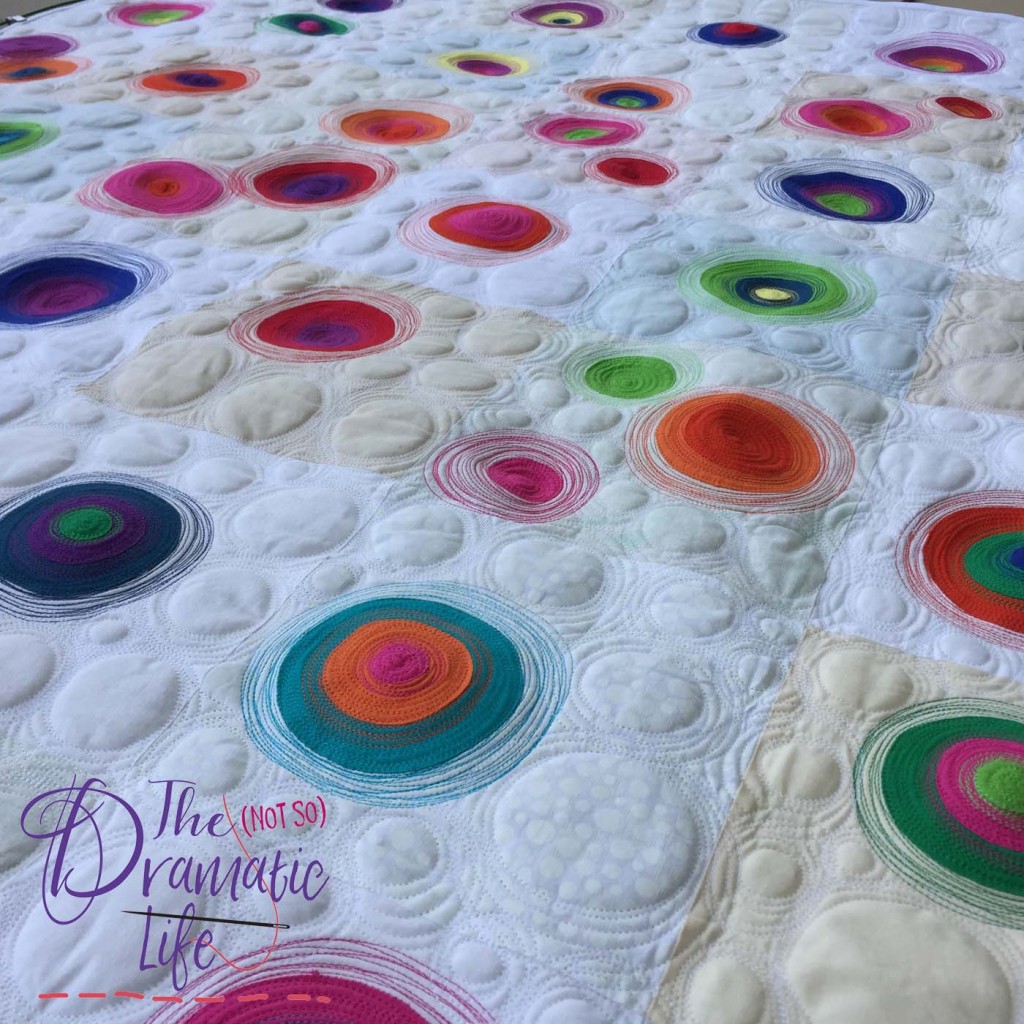
(This post may include some affiliate links. If you click on an affiliate link and choose to make a purchase, I receive a small percentage of the sale at no cost to you. These funds help keep this blog running and programs like the Quilt Concert FREE for everyone!)
Block-based projects work particularly well for me in 100-day projects, and a color theme helps create continuity throughout the project.
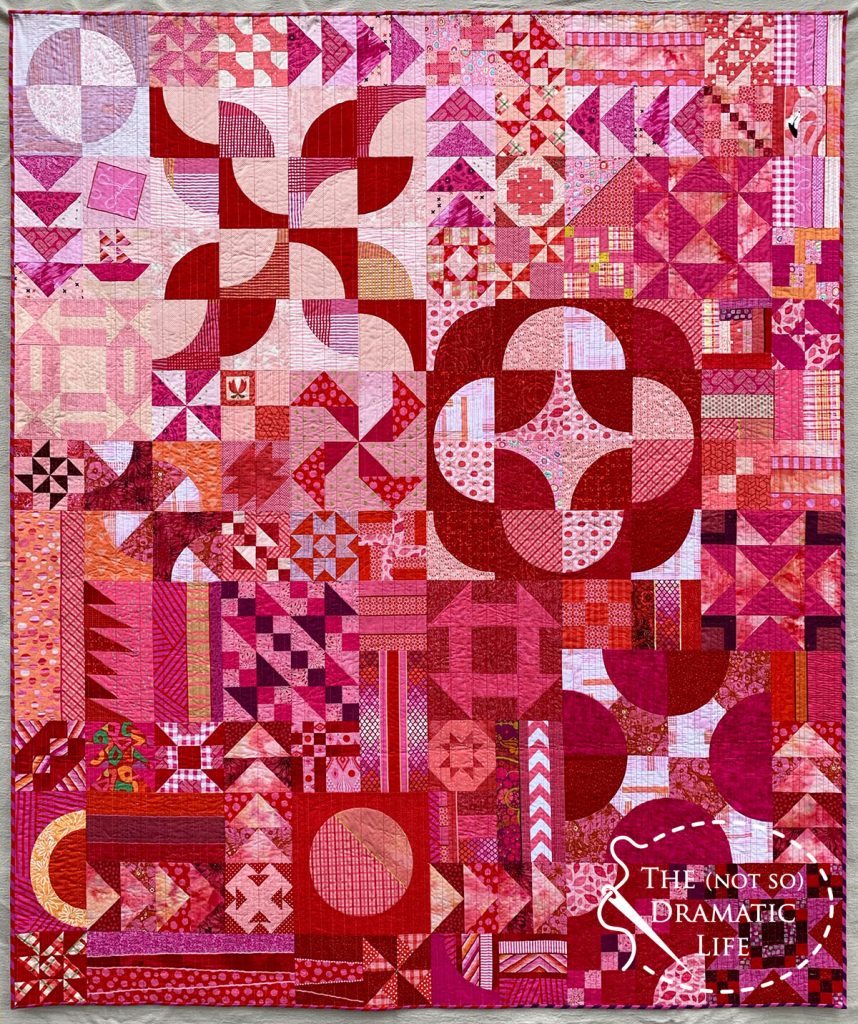
Last October, I started thinking about what I hoped to accomplish with this project and decided to try out a shape I wanted to explore in more depth.
I made an English-paper-pieced mini quilt top a few years ago using Apple Core shapes. Creating a gradient across the design was fun, using a shape that interlocks with its surroundings, similar to puzzle pieces.
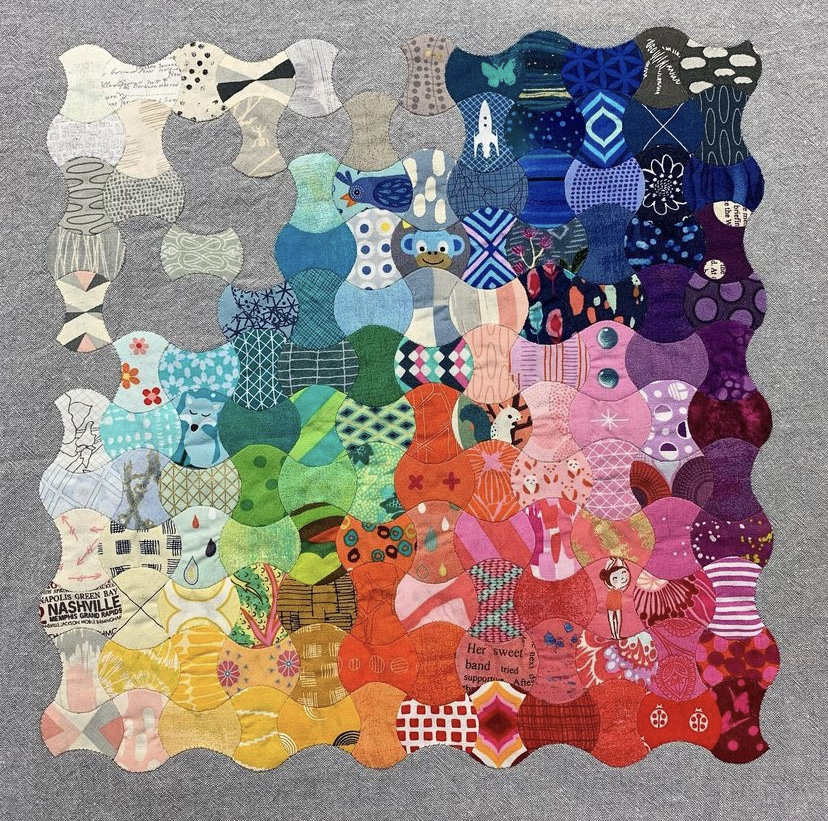
Because this is a more complex shape, I used the apple core die from AccuQuilt. The apple core die fits in the smallest AccuQuilt machine, the Go Me, which I borrowed from a friend for the project’s duration.
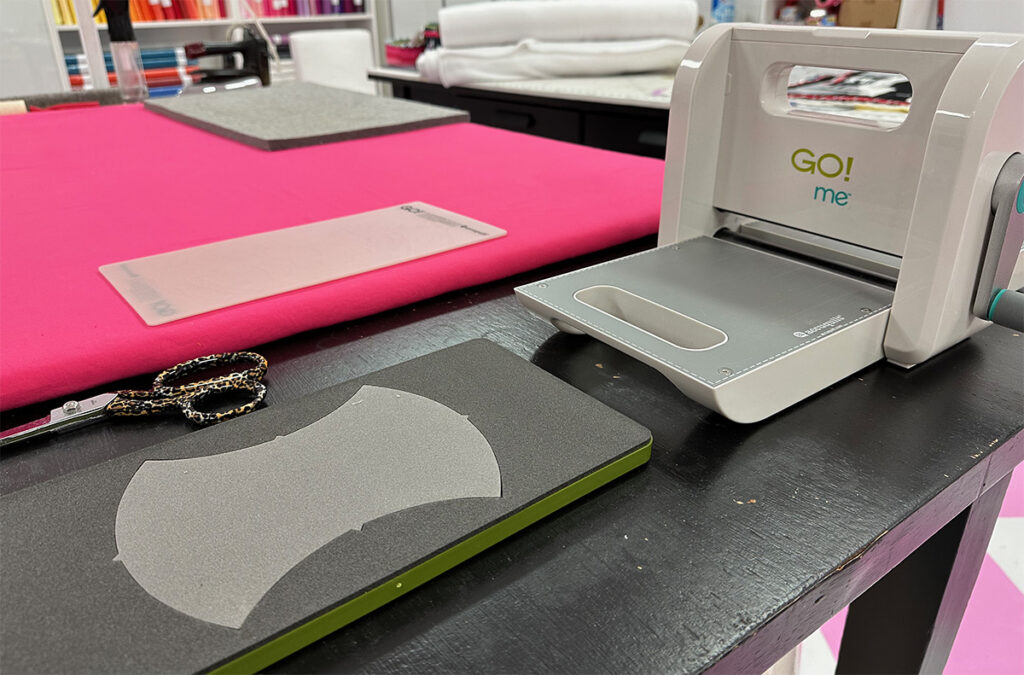
Before committing to the 100-day project, I tested the apple core die by cutting and piecing solid shapes. This test is doing double duty by also serving as the backing for that EPP mini quilt. Maybe I’ll actually get it quilted this year!

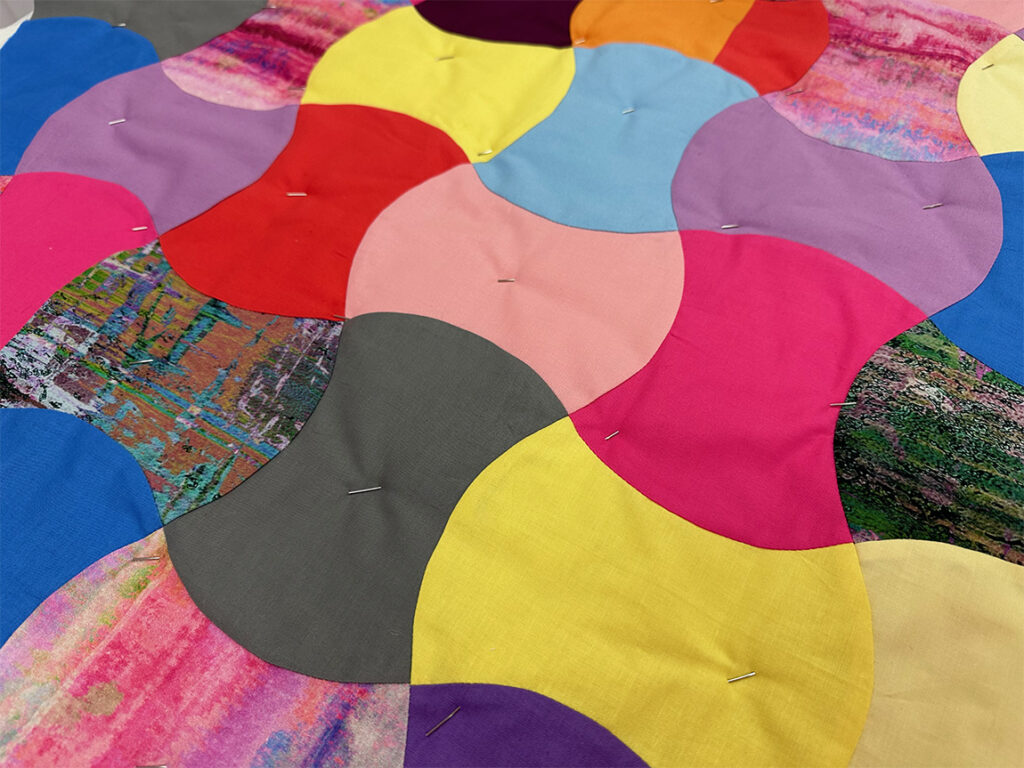
Developing a Color Scheme
I left the color selection for this year’s project partially up to chance because I decided early on that this quilt would highlight the 2024 Pantone Color of the Year.
In 2020-2021, I did a 100-day project focused on the color orange, and to create that quilt’s gradient, I added several pieces of peach fabric to my stash. Since I used peach in a daily project so recently, one of the challenges this year is experimenting with using the same color in a different palette.
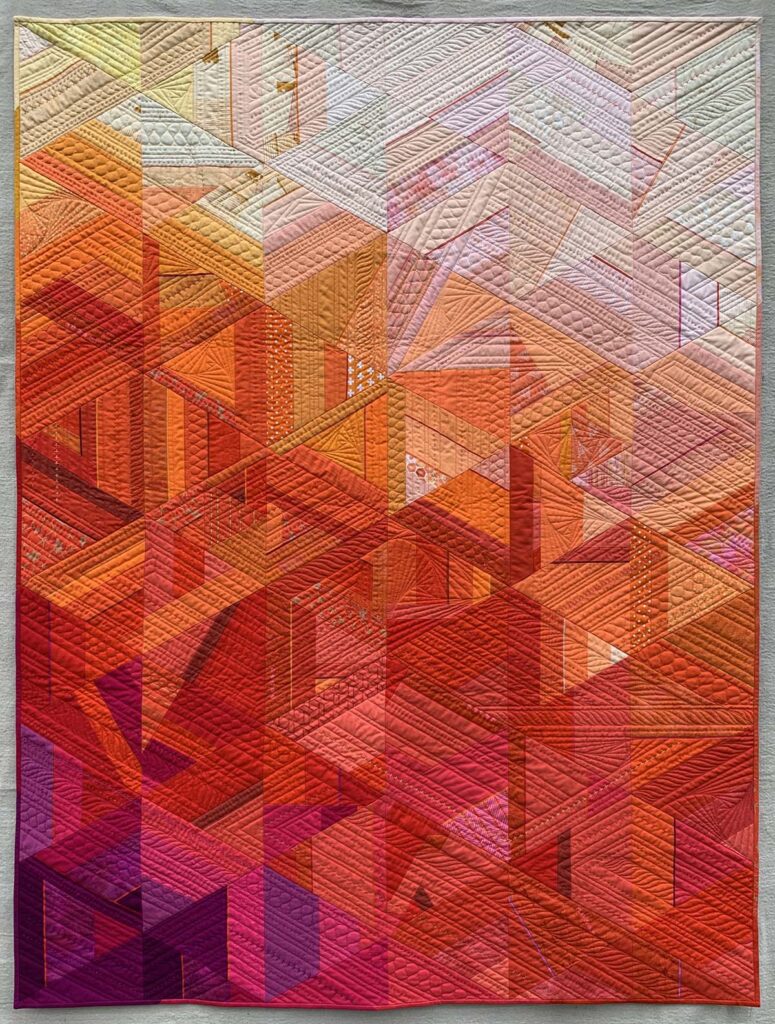
Muted and pastel colors are becoming more prominent in design, so I used this project to explore mixing mute tones with bright ones. The central swath of color in the design features shades of peach, but instead of leaning heavily into the deep oranges as I have done in the past, I let the peach melt into pinks that deepen into rich violets in the bottom right of the quilt. The upper portion of the quilt will gradually wash into a grey-violet.
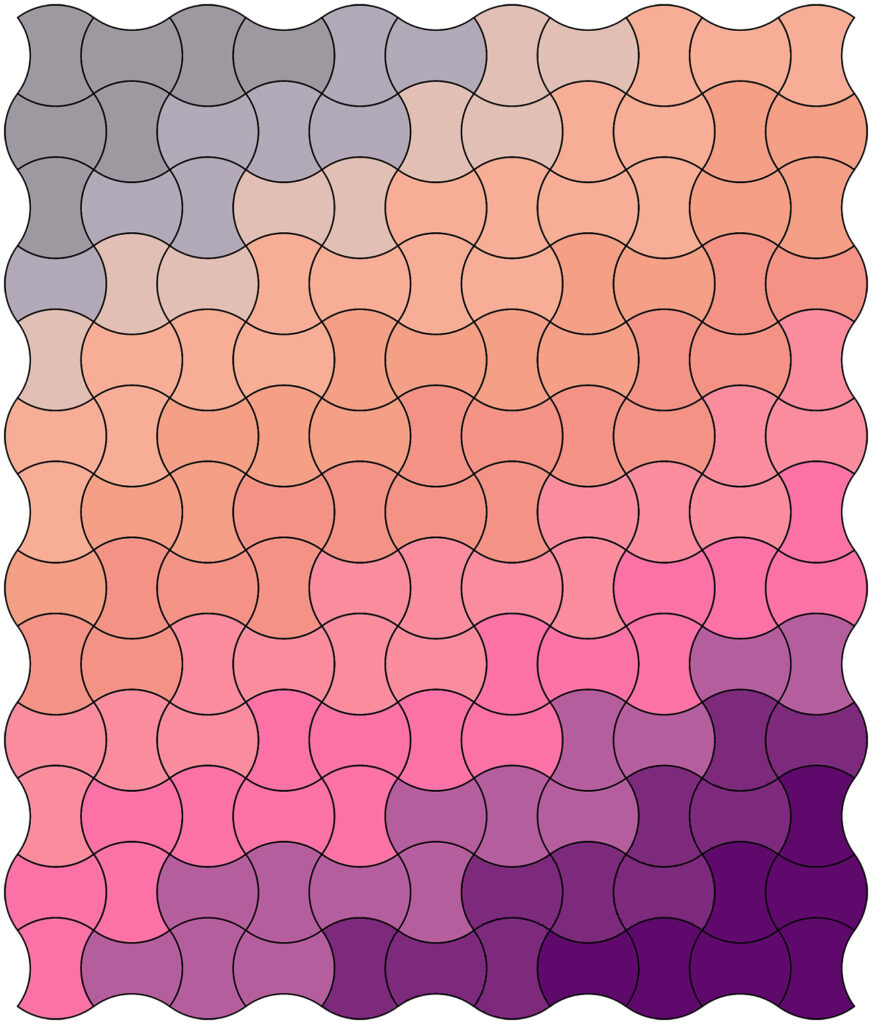
Creating the Apple Core Blocks
Taking a cue from my yellow hexagon project from 2020, I approached this project by piecing the individual blocks before cutting out the final apple core shape.
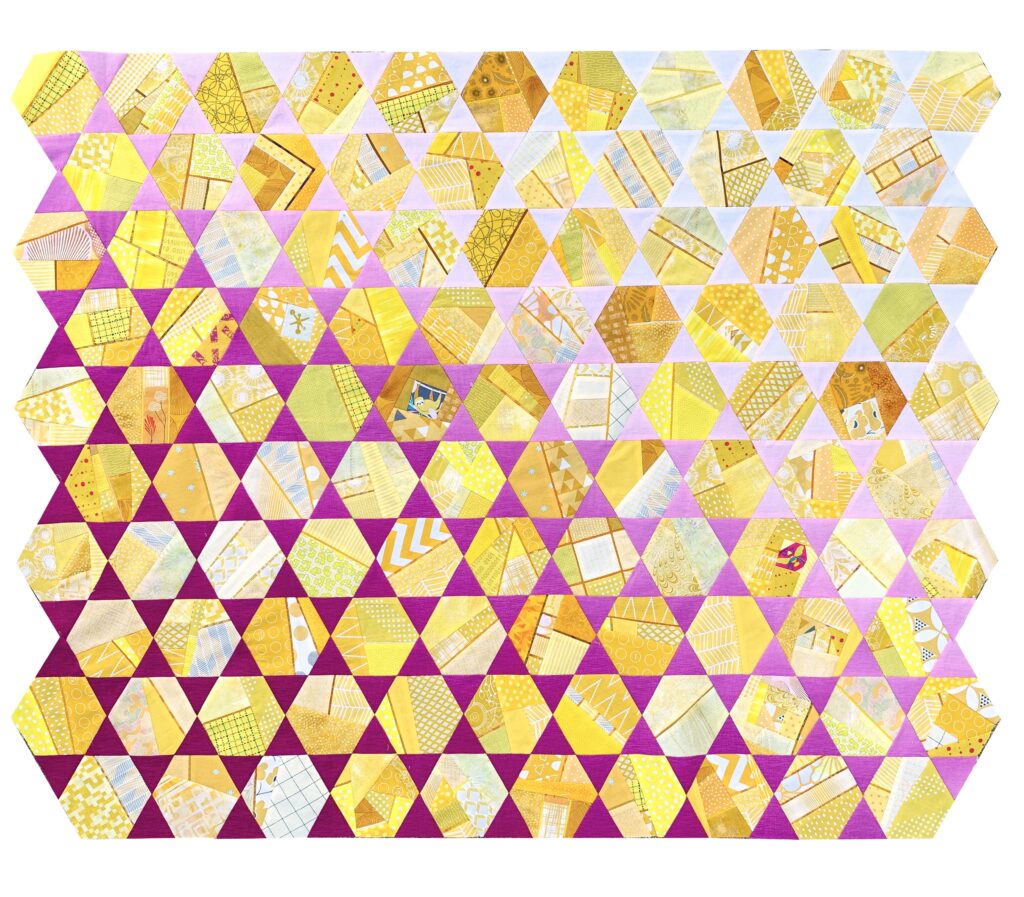
The blocks for the first ten days of the project all came from scrap fabrics, so I first pulled potential fabrics and put them in a temporary storage bin. I draped anything already cut into a strip over a magnetic curtain rod. It was my first time trying this storage method, and it is giving me mixed results. It will probably go back to fulfill its original purpose as a curtain rod as soon as those curtains get made!
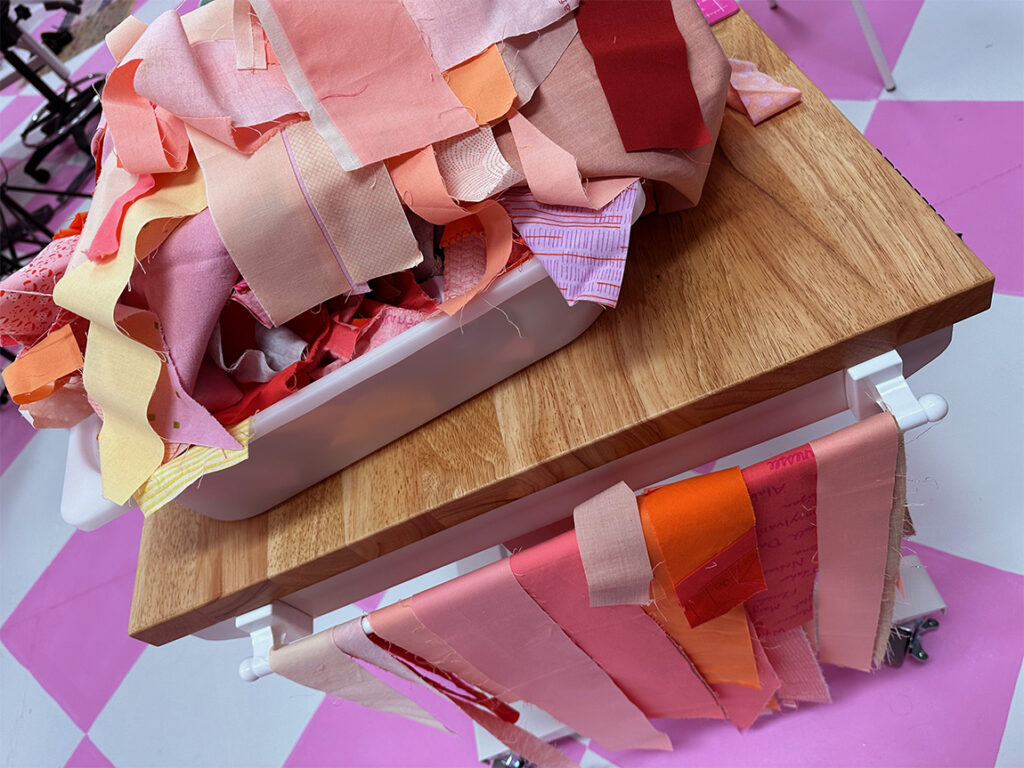
I frequently like to pull from cut scraps when I start an improv project. Working with scraps reduces any intimidation I feel when cutting into a larger piece of fabric. Once I get a feel for the project’s direction, I am okay with digging into the main part of my stash, but starting with scraps forces me to think about the project differently.
In this case, I had cut some equilateral triangles for a long-ago project, and I started this quilt by incorporating a few into the first block.

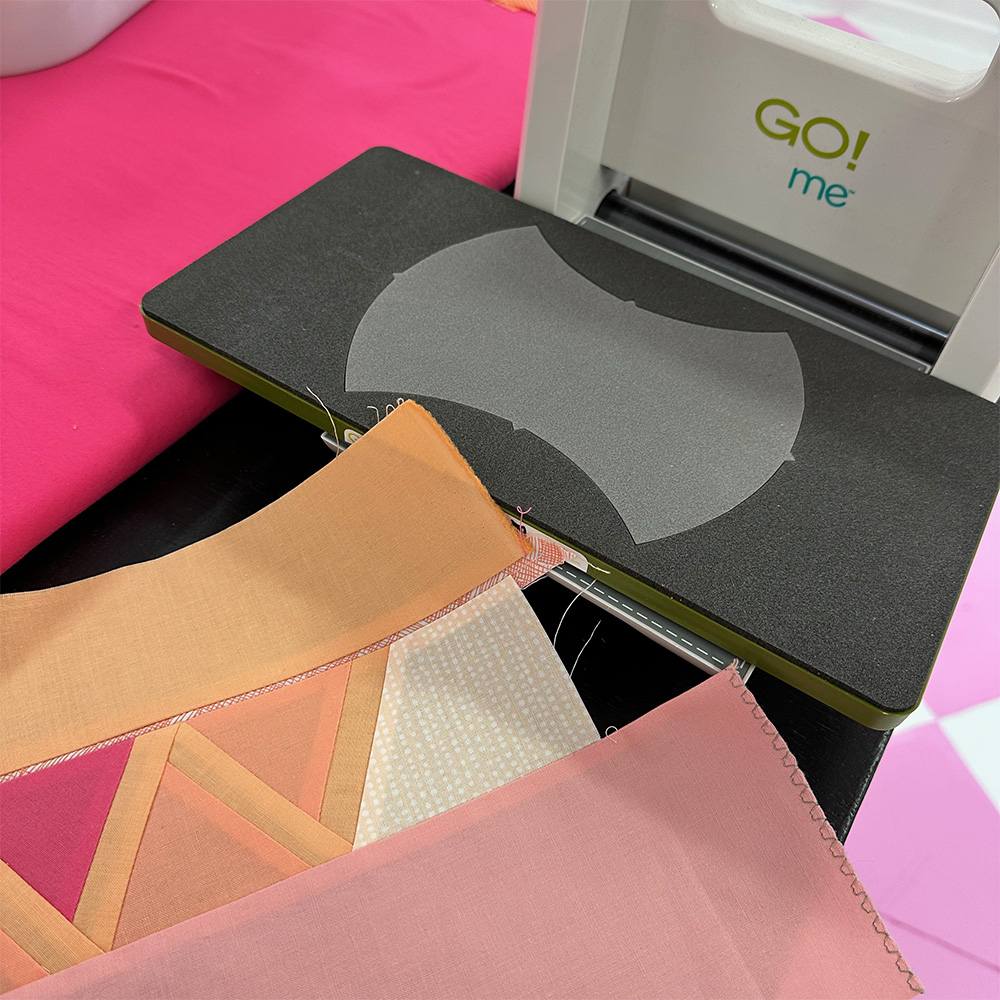
The cutting part of the process is super easy, even with the added thickness of the piecing seams. I wondered what would happen when the fabric thickness differed across the block, even though AccuQuilt cutting dies typically cut multiple layers of fabric simultaneously. It works great! I am especially fond of the notches on all curves that will simplify the final piecing process.

If you want to see how the cutting process works, check out this video where I cut a block using the AccuQuilt Go! me.
Progress on the Apple Core Quilt
The Scope of the Project
As I write this post, we are 11 days into 2024, and I have completed 20 blocks. The final quilt is 11 blocks wide and 13 blocks tall, totaling 143 blocks. The finished quilt will measure approximately 53″ x 62″.
I will construct blocks for about 90 days to leave 10 days for quilting and finishing. That means I need to average 1-1/2 blocks a day.
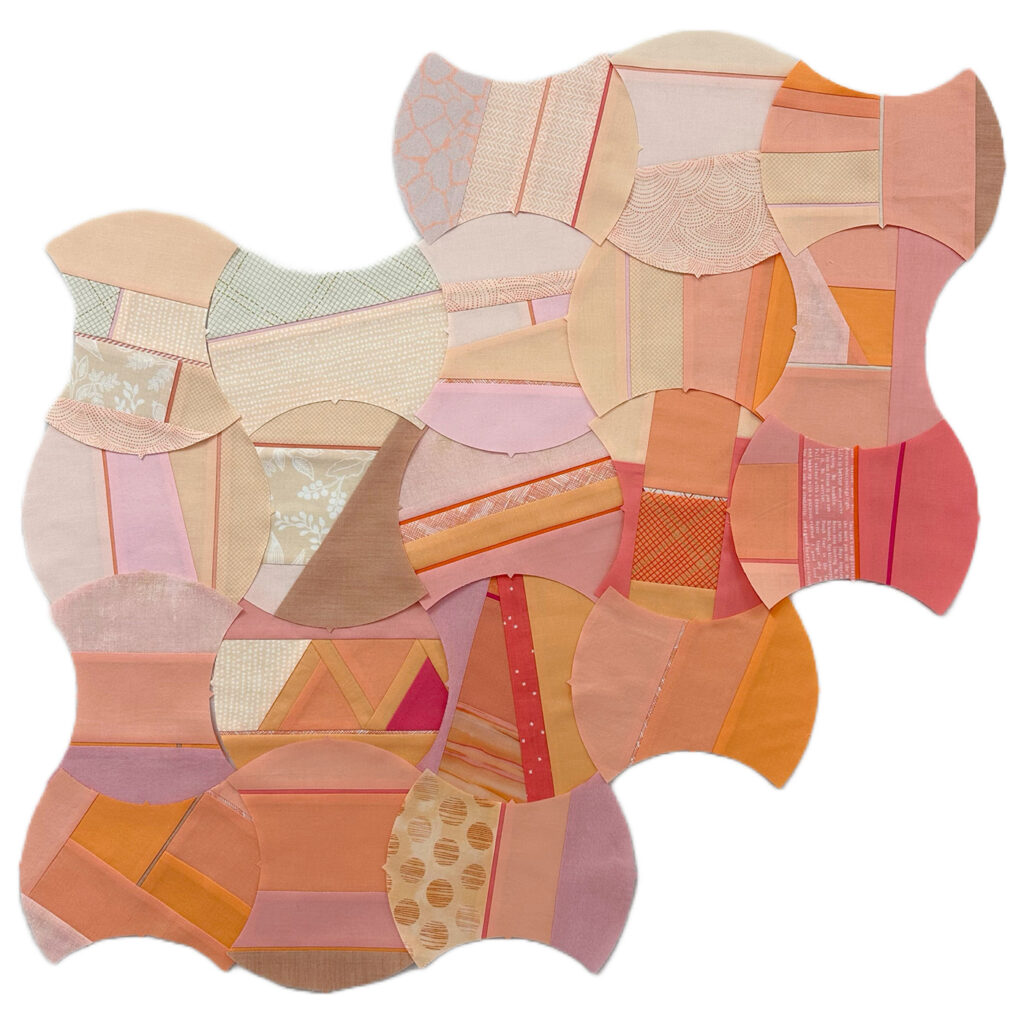
Creating a Schedule
For me, a 100-day project means working on it for 100 consecutive days. (A 100-day project may have a very different definition for you or anyone else you know.)
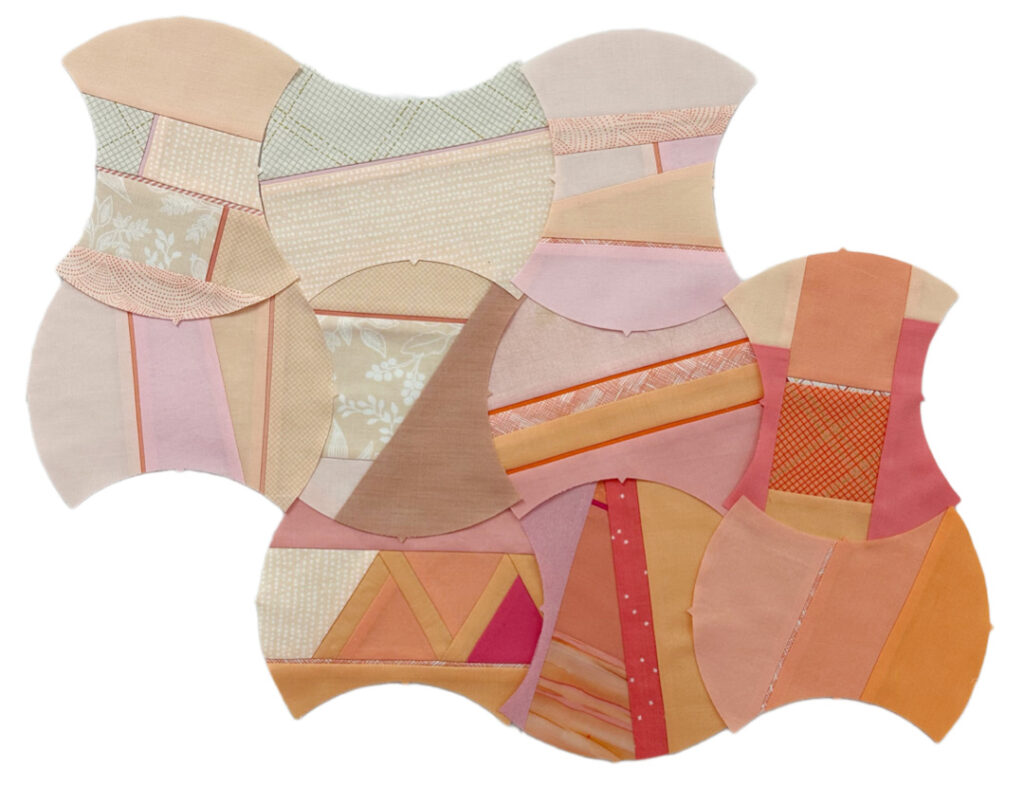
This schedule means I need to plan for times my schedule changes. When I travel to QuiltCon, I will probably do a couple of appliqué blocks since I won’t have my sewing machine with me. Since these are slower blocks, and I’ll be exhausted by the end of most days, I will average less than one block per day. In the weeks before and after the show, I will make some extra blocks to make up for the missed blocks.
As the composition of the quilt solidifies, I will start the final piecing process, so at that point, I will spend less time constructing fewer blocks but more putting the final quilt top together.
Moving Forward Through the 100-Days
Sometimes, the trickiest part of a 100-day project is showing up consistently. Everyone is different. One person’s 100-day project may involve creating work on any 100 days, while mine has to be consecutive, or I’ll never finish! This annual project gives me a much-needed reset at the beginning of the year, reminding me to create something every day and not get stuck entirely behind a computer.

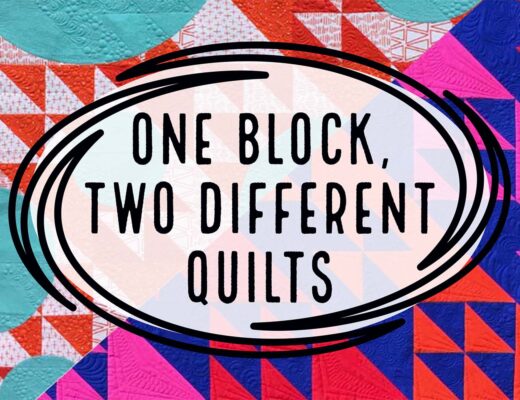
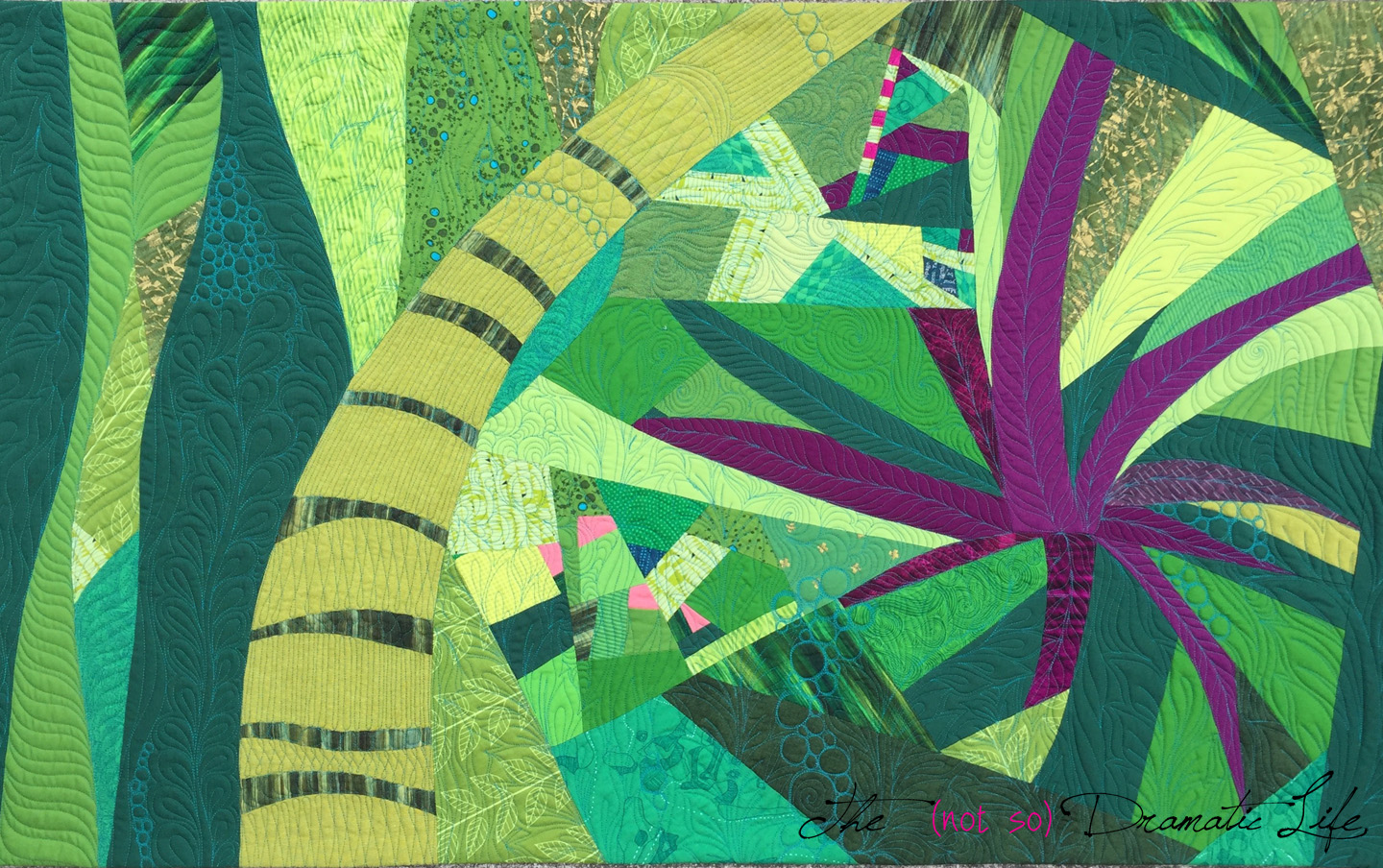
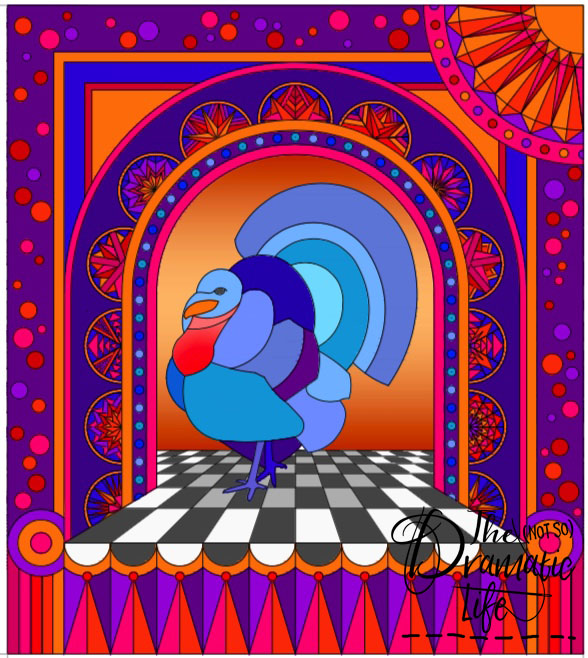
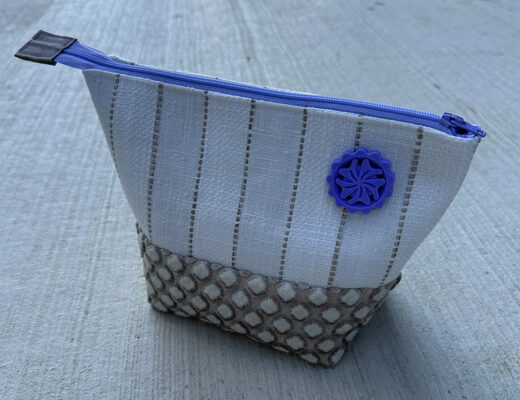
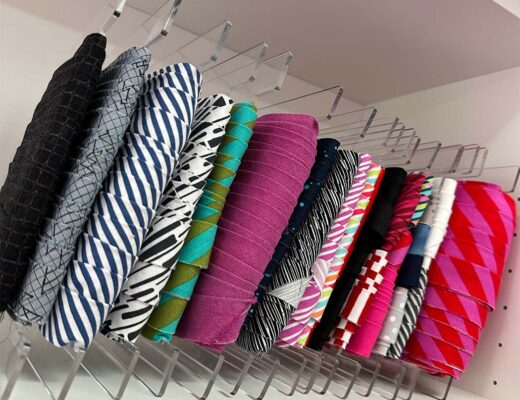
4 Comments
Kim
January 12, 2024 at 5:05 pmThanks for always sharing your process!
heather
January 14, 2024 at 5:28 pmi love this apple core quilt (idea & the one you already did)! definitely an inspiration! thank you for sharing! happy new year! 🙂
Nan Ryan
January 19, 2024 at 6:45 amI have never been fond of apple core as the block reminds me of panty liners. But your scrappy style masks some if that and I love how it is coming together. 😀
Kathie
February 26, 2025 at 8:54 pmCongratulations on your 3rd place win for this quilt at 2025 Quiltcon. I was sew excited to see your name pop up while watching the award video. Well done!